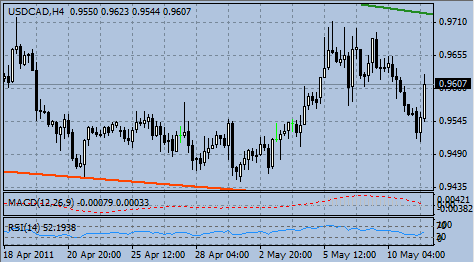- US focus: Euro declines as Merkel, Sarkozy reject increase in Euro zone rescue fund
Notícias do Mercado
US focus: Euro declines as Merkel, Sarkozy reject increase in Euro zone rescue fund
The euro fell against most of its major counterparts as leaders from Germany and France said they are against increased funding to quell the sovereign-debt crisis before next week’s summit of European Union leaders.
German Chancellor Angela Merkel and French President Nicolas Sarkozy, in talks today, said they oppose increasing the European Union’s 440 billion-euro ($581 billion) rescue fund and rejected joint euro-area bonds.
“There’s still a lot of uncertainty about how this European sovereign debt crisis is going to pan out,” said Samarjit Shankar, a managing director for the foreign-exchange group at Bank of New York Mellon. “You’re seeing a lot of disagreement at the top policy-maker level and that’s going to continue nagging away at the euro.”
Merkel said that there are “structural weaknesses” in the euro region that must be addressed. “If the euro fails, Europe fails,” Merkel said.
European Central Bank Vice President Vitor Constancio late yesterday signaled European governments should be ready to increase the size and flexibility of their bailout fund as the ECB urges leaders to do more to fight the fiscal crisis.
Merkel said she is against increasing the size of the fund and sharing public debt with the euro zone, saying that European leaders would do what is necessary to defend the euro.
Europe’s sovereign debt crisis took hold at the end of 2009 after a new government in Greece said the budget deficit was twice as big as the previous administration disclosed. The region’s nations assembled a rescue fund in May, which Greece and Ireland have tapped.
The dollar gained against the euro and yen after exports from the U.S. rose to a two-year high in October.
The trade deficit in the U.S. shrank more than forecast in October as a weaker dollar and growing economies overseas propelled exports to a two-year high. The gap narrowed 13% to $38.7 billion, less than the lowest estimate of surveyed economists and the smallest since January, Commerce Department figures showed.
The Thomson Reuters/University of Michigan preliminary index of consumer sentiment rose in December to 74.2, the highest since June, from 71.6 at the end of last month.
“That’s very good news for the U.S. economy and for the dollar if it’s sustained,” said Greg Anderson, a currency strategist at Citigroup Inc.. “If U.S. yields hold where they’ve moved to this week, then the dollar ought to rally.”
The Australian dollar headed for a weekly drop against the greenback on speculation China will tighten monetary policy.
The People’s Bank of China increased reserve requirements by 50 basis points starting Dec. 20, the central bank said on its website today. It’s the third increase in five weeks.
China’s consumer prices rose 4.7% in November from a year earlier, a statistics bureau report will show tomorrow, according to the median forecast. That would be the fastest pace since August 2008. The Economic Information Daily said today the figure may be 5.1%.
“The danger is China raises interest rates steeply, causing a hard landing for the Chinese economy, which would obviously hurt Australia’s exports,” said Derek Mumford at Richford Capital.

